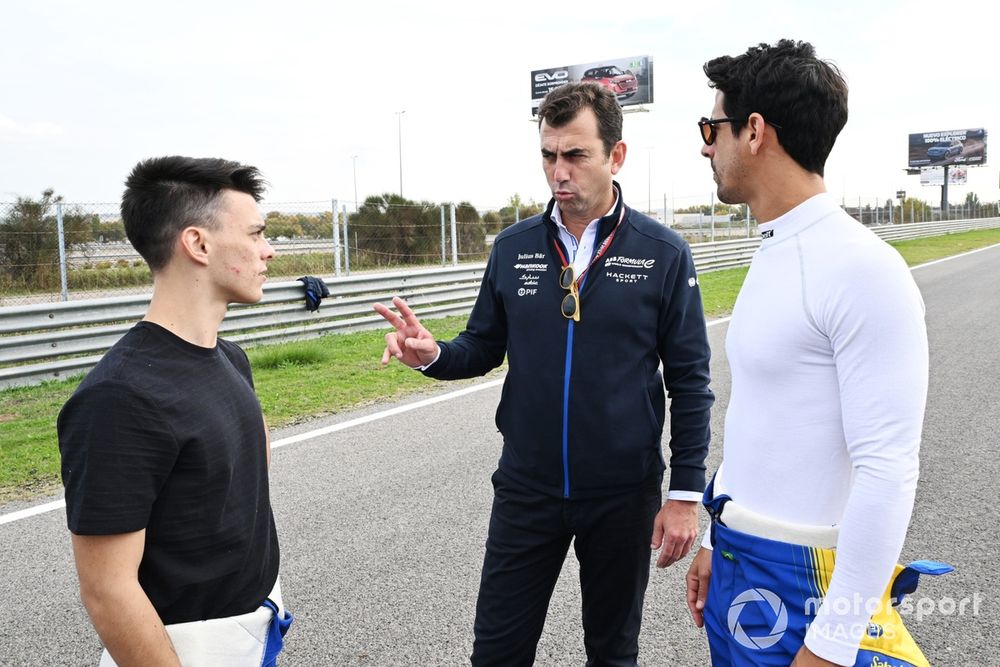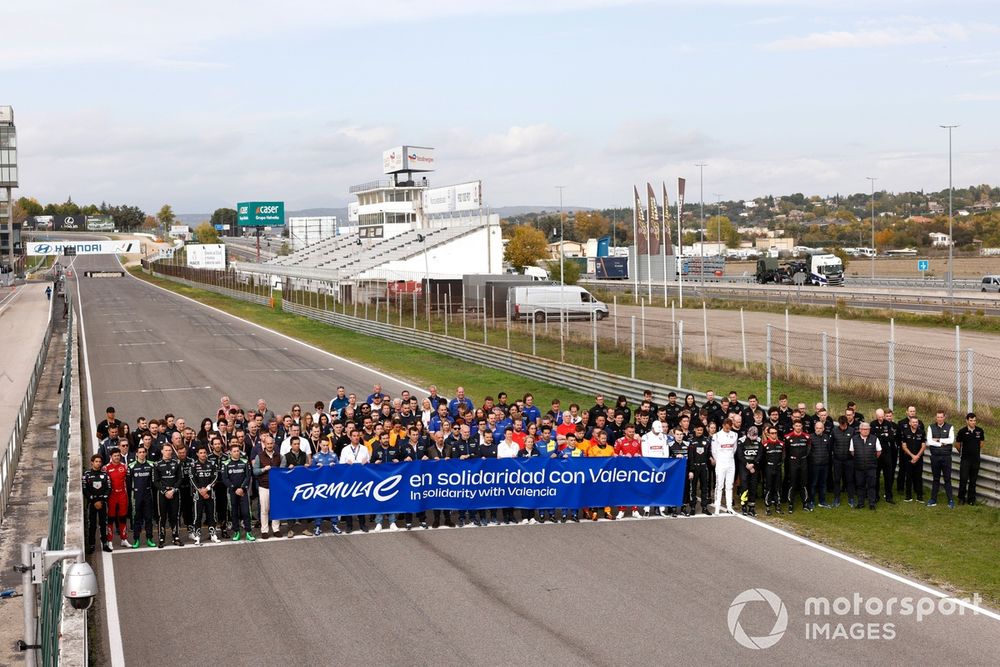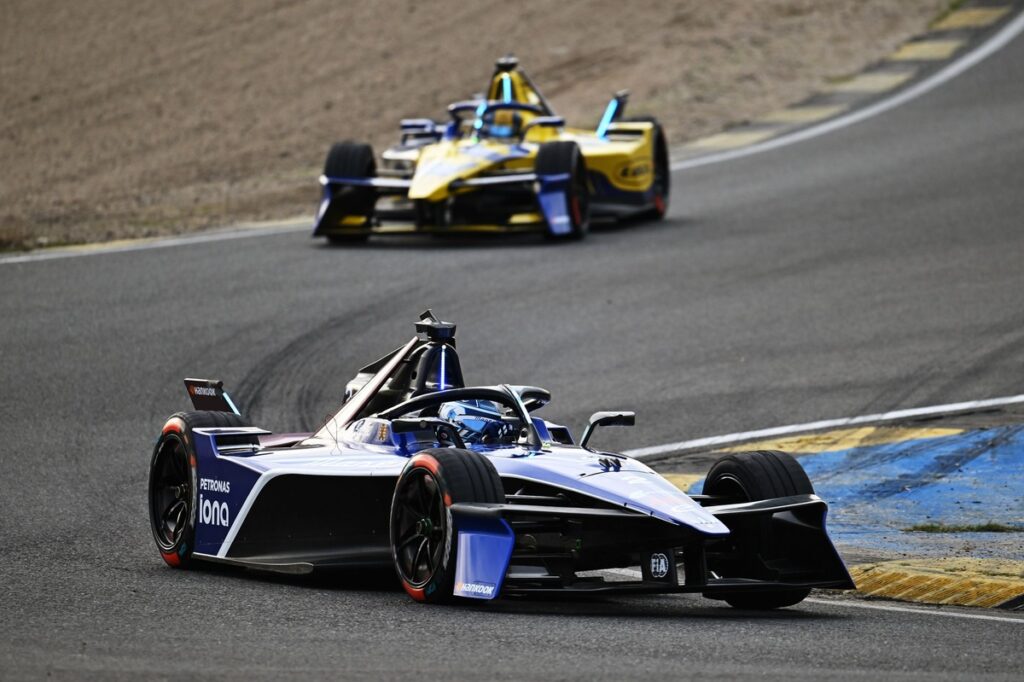“They’ve turned that around quickly” an impressed colleague said to this writer on entering the media centre at the Jarama Circuit on Tuesday morning, as a banner reading “2024/25 Madrid Official Testing” was being erected.
While the sight of a banner might seem like one of the least impressive feats at a race track, the quick turnaround of the wording perfectly encapsulated the mighty effort and great lengths at which Formula E has gone to in order to ensure pre-season testing takes place this week and, at the time of writing at least, without issue.
The all-electric championship’s announcement to cancel its pre-season test in Valencia last Thursday and move to another location inside just 72 hours was both ambitious but also completely the right decision.
With more than 200 killed, many still missing, and infrastructure ravaged by flash flooding, the championship had a moral obligation to not go ahead with four days of running at the Ricardo Tormo Circuit.
“The test was kind of a second thought. We were there to try to help the community, to try to serve them and trying to get back to normality as soon as possible. That was the top priority of Formula E,” championship co-founder, Alberto Longo, exclusively told Autosport.
“There was no chance that [testing] could have happened. I believe that operationally, it was doable, but it was more on the sense of we couldn’t be taking resources out of that city, at that particular moment where there are still people missing.”
Decision to cancel made, attention immediately turned to whether a new alternative could be found at such short notice and “how do we get approximately 100 tonnes of equipment from Valencia to any track in the south of Europe and within a time frame of 72 hours”, adds Longo.
Despite the events of the past week, Formula E has been able to deliver a pre-season test to schedule
Photo by: Simon Galloway / Motorsport Images
With its relatively close connections to Valencia, being only 350km away or an approximately four-hour drive, on-site infrastructure and a FIA Grade 2 homologation, Jarama was the first, and realistically, only choice and an agreement was quickly reached with the circuit operators.
While teams had avoided getting equipment stuck in the Valencia region and able to relocate relatively easily, this was not the case for Formula E as its entire logistical base is situated at the Ricardo Tormo Circuit.
Questions arose over whether it would even be possible to get supplies out of the city given the battered road connections, let alone whether it would be feasible in the short time available given the trouble in sourcing transport. In the end, some eight trucks made nearly 40 trips ferrying equipment through Spain to the country’s capital, the first only arriving at 11pm on Friday and the last at 3pm on Monday.
“At some point, even [last] Thursday, I was telling Jeff [Dodds, CEO] that we might not even do the first race because we have all the equipment there in Valencia” Formula E co-founder Alberto Longo
“We have a very positive attitude in Formula E, we have a lot of people that are fully committed to the company and they have worked 24/7 for three days, and the spirit was always very positive,” says Longo.
“If you talk to the people in the ecosystem, they will all tell you that there is no chance that we will ever make it. Not because they don’t have trust in us, because I actually believe that they do, but because of the whole situation.
“You could just watch the TV, and say, how on earth are these guys going to get all the equipment to Madrid and have enough time to provide services to the level that we’re providing services today.”
Even with the infrastructure now in place at Jarama, another issue arose in the form of making sure the extra equipment which is needed to host a race was going to be available, without which the season-opener in Sao Paulo on 7 December would be at risk.

Championship co-founder Longo with Zane Maloney and Lucas Di Grassi at Jarama
Photo by: Andrew Ferraro / Motorsport Images
“We needed to bring absolutely every piece of equipment that we have in Valencia here in order to organise all the logistic for the races,” says Longo.
“At some point, even [last] Thursday, I was telling Jeff [Dodds, CEO] that we might not even do the first race because we have all the equipment there in Valencia and obviously that equipment is absolutely critical for Sao Paulo and Mexico.”
Formula E has been criticised over the last decade on its direction with regards to its racing and for various other aspects, some often warranted, but what has been achieved over the last few days has been nothing short of impressive, while at the same time not forgetting those who have suffered because of the floods in Valencia.
A minute’s silence was held before any running on Tuesday in honour of the victims, while a donation of €50,000 has been made by the championship to offer support, with a fundraising page created for others to make offerings.
Perhaps somewhat ironically, Formula E’s DNA of trying to put on world championship races in the heart of cities across the globe has prepared it for the events of last week, allowing it to be fluid in how it deals with crisis perhaps unlike any other championship.
“Operationally speaking, we have [dealt with] worse things than this one, there has been miracles in many other places in the world,” adds Longo. “Normally we race in the heart of the biggest cities of the world, with a lot of impact politically. You have seen some cancellation of events, all that is because of a political issue or challenge.
“We have never seen an issue in terms of operation. Why? Because we have an amazing team that can really deliver and this is the perfect example again.”

As Formula E commences pre-season testing, it hasn’t forgotten the victims of the Valencia flooding
Photo by: Andrew Ferraro / Motorsport Images
Read the full article here

